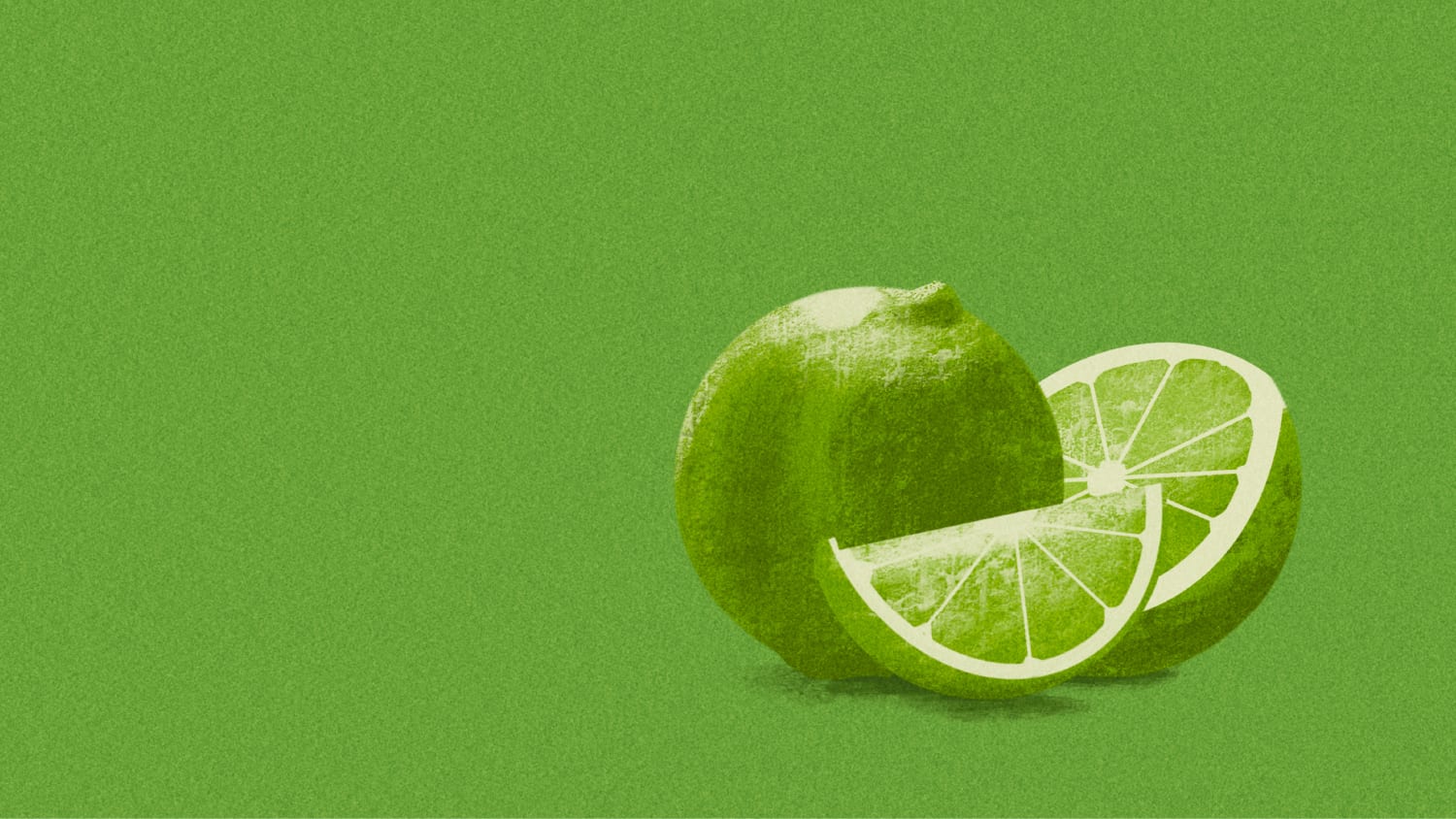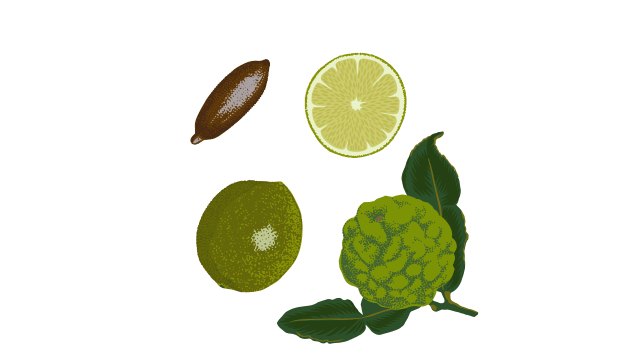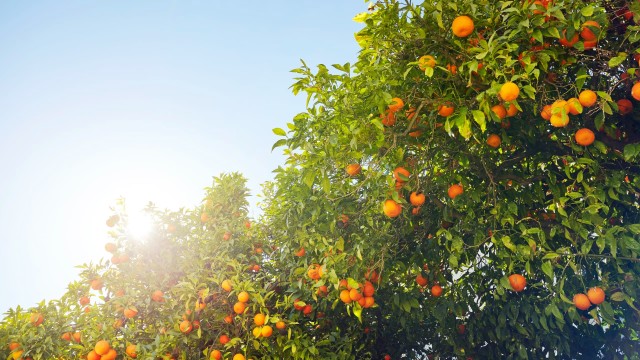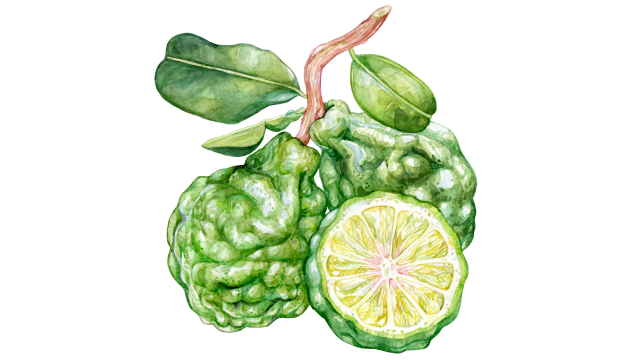Citrus Can Transform You

Even in the new part of Mumbai, a backyard was a rare luxury. It was in one of those precious outdoor parcels where Vivek Malik grew roses — long before he knew about, let alone grew, yuzu. “Orange roses,” Vivek says. “The scent attracted me to them, and I just became very fond of gardening. So in a way, it’s just destiny. This is meant to be.”
“This” is Bhumi Growers, the unlikely specialty citrus oasis Vivek runs with his wife and business partner, Seema. As exceptional as what the couple grows for both 300-plus chef clients and garden-variety acid freaks — 16 species of rare citrus, plus galangal and turmeric — is where they grow: in a crater-like clearing ringed by old-growth forest and entombed landfill, just south of Trenton, New Jersey.
The Garden State has agricultural bragging rights aplenty, from Hammonton’s mighty blueberries to Jersey tomatoes treated with the reverence of religious relics. Citrus, however, is not something that grows here on a commercial scale. For that you’d need a very large greenhouse and even larger reserves of patience. The Maliks, high-school sweethearts who moved to the U.S. for grad school in the ’90s, have both. They also have a distinct outlook on connections between agriculture and wellbeing, given Seema thinks her life might have been saved, inadvertently, by yuzu.
“I was first diagnosed with stage-two breast cancer in 2014,” she says. “I took the full treatment: surgery, chemo, radiation. Then it came back in 2020 during the pandemic. Before surgery my husband and my daughter had to say good luck on FaceTime.”
At the time, the couple was still working their finance 9-to-5 jobs in New York, even though Bhumi had grown significantly. “We started it as a hobby in 2003,” Seema says, disappearing into a rustling grove of Mandarin oranges. “We love Japanese food and came across yuzu at Nobu. The flavor was so good, we had to get our hands on the real thing.” Vivek, a mergers and acquisitions pro, acquired a sad, shriveled, $2 yuzu from Mitsuwa in Edgewater and merged its seeds into a pot. Six germinated and grew over years of living room winters and patio summers — a heartening presence in their wooded West Windsor colonial.
By their fifth year growing, the Maliks had a precocious toddler, Simran, running around the house. When Simran turned four, the trees flowered and bore fruit for the first time. The following year, more flowers, more fruit, too many to eat themselves, so they took their yuzu to the best nearby restaurant, Elements, in Princeton. Getting locally grown citrus “was a holy shit moment,” chef-owner Scott Anderson says. Now, the restaurant brings in every type of fresh citrus the Maliks have. Chef de cuisine Mike Ryan’s dessert of yuzu-soy milk custard served in the fruit’s hollowed-out emerald shell returns to the menu every fall.
Dedication to Mother Earth
With their first client hooked, the Maliks had their own business, a lifelong dream of Vivek’s mom, Kamla, who passed away in 2017. Vivek and Seema called the farm Bhumi. “It means mother earth in Hindi, and we dedicated the business to my mother,” Vivek says. She was the inspiration for Seema and him to pour their blood, sweat, and tears into the farm. On this hot morning, two of the three darken Vivek’s lavender polo shirt. “We really feel, every time she’s looking down, she’s really liking it.”

To grow the farm, starting more plants from seed was out of the question, as was planting them in the ground, so the Maliks invested in rootstock from California nurseries — strictly heavy-bearing dwarf varieties that could thrive in containers. They leased space in the research greenhouse at Burlington County’s Resource Recovery Complex, where turbines capture and convert the landfill’s methane emissions into electricity to heat the greenhouse.
They learned to graft, became armchair meteorologists, and grew their clientele one citrus-obsessed chef at a time: Daniel Boulud, Jean-Georges Vongerichten, John and Karen Shields in Chicago, Cathal Armstrong and Anton Bolling in D.C., Nok Suntaranon and Nicholas Elmi in Philadelphia, even over in L.A., where Derek Wilcox of Imari could ostensibly source Japanese citrus from his own backyard but calls the Maliks instead.
In just four years, the Maliks turned an experiment into the East Coast’s illogical, improbable agora of specialty citrus. While still working their day jobs on Wall Street. The cancer recurrence put Seema and Vivek at an existential crossroads. “How many times do we have to go through cancer to realize that our work was having a toxic influence on our health?”
She quit her finance job in March 2020, and Vivek followed one year and one month later, cementing citrus as their full-time career and expanding the business from fresh fruit to include cocktail-friendly tinctures, syrups, and glycerties (alcohol-free bitters), with soaps and cosmetics in the pipeline. The ability to prioritize their family and foster a deeper connection to nature has made a huge difference in their wellbeing.
We move through the Makrut limes, their brain-like fruits so fragrant a mere brush by one launches an invisible flotilla of essential oils into the air. Vivek darts between trees like a kid on an Easter egg hunt, collecting a fluorescent lemonquat here, a dew-coated calamansi there, with a nimble switch of his red Felco knife. Some we snack on whole. Others, we hold over our mouths and wring like tiny sponges. Each fruit expresses its distinct harmony of sweet, sour, bitter, and floral. Nature plays with the levels like a music producer on a soundboard.
Seema smiles and says, “This beats staring at monitors all day.”
Bhumi Growers ships varieties of fresh citrus at different times throughout the year.
Key Takeaways
- Growing fruits led to a closer connection to earth.
- Citrus fruits provide antioxidant benefits.
- Yuzu and other citrus offer culinary versatility





